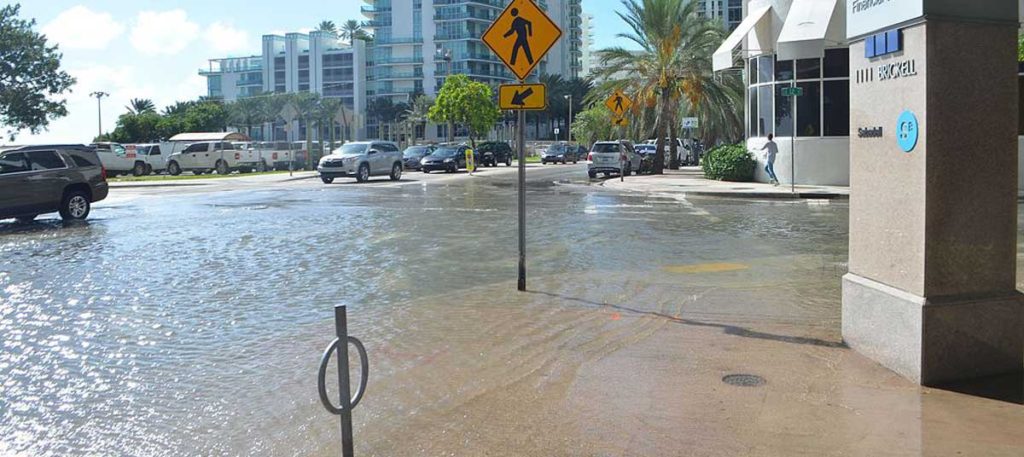Our top
scientific institutions, including the U.S. military, NASA, and NOAA all say pollution is causing our planet to get warmer. Still, false information designed to discredit climate science is actively promoted by organizations with ties to coal and oil. Many leaders in Congress are also spreading disinformation about the climate. While fossil fuel companies are generating enormous profits, we ultimately will bear the costs associated with extreme weather and rising sea levels. Representatives for South Carolina in the United States Congress have an important role in supporting efforts to solve the issue. Find your representatives and their positions on climate by using the form below.
United States Senate Representatives for South Carolina
Last District Updates 2020
South Carolina is represented in the Senate by
Lindsey Graham and
Tim Scott.
Tim Scott has a poor voting record when it comes to the environment. He voted to end the clean power plan and stood against the U.S. participation in the Paris Climate Agreement. In 2015, Scott voted against a symbolic
amendment to a bill stating that humans significantly cause climate change.
Lindsey Graham, for his part, speaks some truth on climate change, and spoke against Trump's decision to exit the Paris agreement on climate. However, he voted against allowing the EPA to regulate greenhouse gas emissions, the primary cause of climate change. Taking it all in,
Lindsey Graham acknowledges that climate change is caused by humans and has taken steps to seek common ground with those who seek action to address the causes of climate change.
I believe manmade emissions are hurting the environment. The best way for a Republican to fight on this issue is the solution, not argue with the science and I think the science is sound. And at the end of the day…ask my competitors, what is the environmental policy of the Republican party? - Lindsey Graham
District 1:
Nancy Mace won this district in 2020. She seems to indicate she does not accept climate change science, and has used the "I'm not a scientist" line. PolitiFact concluded it is "mostly true" that she "denies climate change".
Joe Cunningham held this seat in 2018-2020. Among Joe Cunningham's issues, he includes a statement that climate change is real. Previously,
Mark Sanford represented district 1. The Republican broke with his party to at least acknowledge the reality of climate change. South Carolina is already seeing the negative effects of climate change, which include rising sea levels and extreme weather.
I'm kind of mixed on this. I’m not a scientist, and I've read science on both sides of this issue. To me, it's not clear cut. I know that here in downtown Charleston, we’re seeing rising sea levels. And that could be a product of the climate, but that's also partially a product of the peninsula being largely built on landfill in many places. - Nancy Mace, quote from PolitiFact
I think it's more complicated than people really realize. You can't say one or the other when there's data on both sides of the issue. And I read about scientists that have flipped from one side to the other — both ways — so it's hard to understand and know which one is right. - Nancy Mace, quote from PolitiFact
District 2:
Joe Wilson represents South Carolina's second district. Joe Wilson has has questioned climate science. He voted to disallow the EPA from regulating greenhouse gas emissions [
source], and supported Trump's decision to exit the Paris agreement on climate. Sean Carrigan challenged in 2018 without including climate as an issue in his campaign.
District 3: Jeff Duncan represents district 3. He has stood against regulating greenhouse gas emissions. He has, in the past, cast doubt, saying (in 2013), "I believe the climate is changing, but I don't believe it's man driven."
District 4:
Trey Gowdy retired this seat in 2018. He had stood against efforts in Congress to address the causes of climate change.
William Timmons now represents the district. He has also stood against proposed regulations to address the causes of climate change, saying it's a global problem.
It is not a United States issue. It is a global issue, and we are not going to be the one to solve it. The planet has to solve it. - William Timmons
District 5:
Ralph Norman represents district 5 in South Carolina. He has stood against proposals in Congress to regulate emissions to address the causes of climate change, and voted to cut the EPA - see also:
What the U.S. Was Like Before the EPA. Archie Parnell challenged in 2018.
District 6: Jim Clyburn represents district 6. He is a supporter of efforts to address the climate change problem.
District 7: Tom Rice represents district 7 in South Carolina, which is extremely vulnerable to the effects of climate change. He has a poor record of voting on issues related to the environment. Tom Rice voted to disallow the EPA to limit greenhouse gas emissions.
Disclaimer: The statements and comments about representatives positions are the opinion of the writer. We try to include accurate information and base the representative and candidate positions on a variety of reliable sources. Sources include reputable reporting on candidates' past statements, campaign websites, press coverage of campaigns and representatives, votes in Congress on issues, and party affiliation. If you feel we are missing something, let us know. Please contact us to suggest a correction or request an update. Individual representatives and districts are updated periodically, but may at times become outdated. These statements are opinions related to how the U.S. Congress is responding to a national security and public health issue, but should be treated as opinions.


